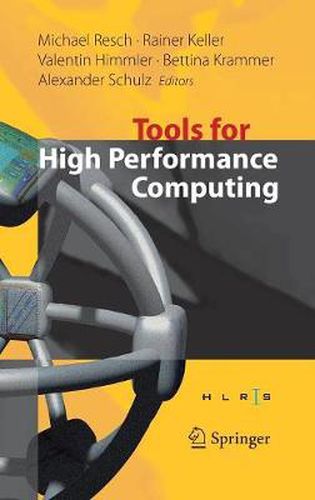Readings Newsletter
Become a Readings Member to make your shopping experience even easier.
Sign in or sign up for free!
You’re not far away from qualifying for FREE standard shipping within Australia
You’ve qualified for FREE standard shipping within Australia
The cart is loading…






This title is printed to order. This book may have been self-published. If so, we cannot guarantee the quality of the content. In the main most books will have gone through the editing process however some may not. We therefore suggest that you be aware of this before ordering this book. If in doubt check either the author or publisher’s details as we are unable to accept any returns unless they are faulty. Please contact us if you have any questions.
Developing software for current and especially for future architectures will require knowledge about parallel programming techniques of applications and library p- grammers. Multi-core processors are already available today, and processors with a dozen and more cores are on the horizon. The major driving force in hardware development, the game industry, has - ready shown interest in using parallel programming paradigms, such as OpenMP for further developments. Therefore developers have to be supported in the even more complex task of programming for these new architectures. HLRS has a long-lasting tradition of providing its user community with the most up-to-date software tools. Additionally, important research and development projects are worked on at the center: among the software packages developed are the MPI correctness checker Marmot, the OpenMP validation suite and the M- implementations PACX-MPI and Open MPI. All of these software packages are - ing extended in the context of German and European community research projects, such as ParMA, the InterActive European Grid (I2G) project and the German C- laborative Research Center (Sonderforschungsbereich 716). Furthermore, ind- trial collaborations, i.e. with Intel and Microsoft allow HLRS to get its software production-grade ready. In April 2007, a European project on Parallel Programming for Multi-core - chitectures, in short ParMA was launched, with a major focus on providing and developing tools for parallel programming.
$9.00 standard shipping within Australia
FREE standard shipping within Australia for orders over $100.00
Express & International shipping calculated at checkout
This title is printed to order. This book may have been self-published. If so, we cannot guarantee the quality of the content. In the main most books will have gone through the editing process however some may not. We therefore suggest that you be aware of this before ordering this book. If in doubt check either the author or publisher’s details as we are unable to accept any returns unless they are faulty. Please contact us if you have any questions.
Developing software for current and especially for future architectures will require knowledge about parallel programming techniques of applications and library p- grammers. Multi-core processors are already available today, and processors with a dozen and more cores are on the horizon. The major driving force in hardware development, the game industry, has - ready shown interest in using parallel programming paradigms, such as OpenMP for further developments. Therefore developers have to be supported in the even more complex task of programming for these new architectures. HLRS has a long-lasting tradition of providing its user community with the most up-to-date software tools. Additionally, important research and development projects are worked on at the center: among the software packages developed are the MPI correctness checker Marmot, the OpenMP validation suite and the M- implementations PACX-MPI and Open MPI. All of these software packages are - ing extended in the context of German and European community research projects, such as ParMA, the InterActive European Grid (I2G) project and the German C- laborative Research Center (Sonderforschungsbereich 716). Furthermore, ind- trial collaborations, i.e. with Intel and Microsoft allow HLRS to get its software production-grade ready. In April 2007, a European project on Parallel Programming for Multi-core - chitectures, in short ParMA was launched, with a major focus on providing and developing tools for parallel programming.